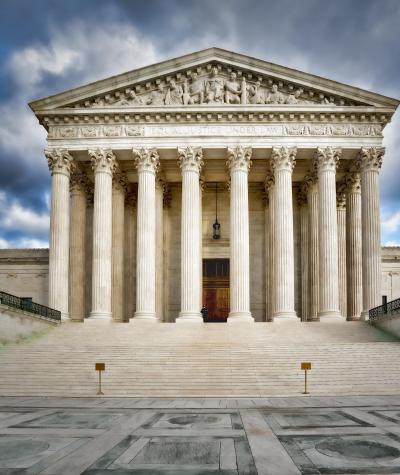The U.S. Supreme Court issued a decision at the end of its 2024-2025 term that will drastically alter the ability for courts to check presidential power.
With its decision in Trump v. CASA, a case nominally about the Constitution’s guarantee of birthright citizenship, the Supreme Court sets the stage for a drastic expansion of presidential power by allowing the current — and any future — administration to act lawlessly, by closing off paths formerly available to courts for stopping those actions.
Learn more about the birthright citizenship case here.
While the decision delays a final ruling on the president’s unlawful citizenship-stripping order, it makes it far more difficult for courts to quickly and decisively prevent the executive branch from harming Americans by rolling back constitutionally protected rights.
Because of the Supreme Court’s ruling, the judiciary will now have fewer tools to issue injunctions that effectively protect the rights of all Americans — even when the president violates the Constitution. Today, the Supreme Court effectively ended lower courts’ ability to issue nationwide injunctions, except in class action cases.
Nationwide injunctions are court orders that can be used to block either a piece of legislation or enforcement of an executive order throughout the entire country temporarily while it is being challenged in court.
Such injunctions do not just protect those who are suing the government, they can also protect all Americans who are being harmed by the government’s actions. With nationwide injunctions, a district judge can ensure that unconstitutional laws or executive actions are put on hold everywhere, not just within their jurisdiction.
All Americans are entitled to their constitutional rights, not just those who sue the government and win.
For our system of checks and balances to operate well, courts must be able to protect the rule of law from those who seek to undermine it, even the president. The Supreme Court shirked that responsibility and drastically undermined the courts’ ability to serve as a meaningful check when the president overreaches his constitutional authority.
Even with today’s decision, some doors remain open. There are indeed still pathways available via nationwide class action lawsuits and other legal remedies. Lower courts must continue the crucial work of holding the president accountable for unlawful conduct when these cases reach their courtrooms in the future.
With this huge shift in the balance of power, the day-to-day rights of every American are now at stake. This ruling is not just a legal technicality; the Supreme Court has made it significantly more difficult for Americans to fight back when their rights are threatened.
The decision effectively strips lower courts of the ability to block unconstitutional actions that impact millions. It invites future presidents to act with impunity, knowing that legal challenges could be slow, fragmented and often too late to matter. Justice Jackson’s dissent outlines this threat clearly:
“The Court’s decision to permit the Executive to violate the Constitution with respect to anyone who has not yet sued is an existential threat to the rule of law."
At a time when the highest court in the land is turning its back on accountability, Campaign Legal Center will remain unwavering in our mission to advance democracy for all Americans by:
- Challenging efforts to undermine voting rights and citizenship protections in court.
- Fighting attempts by the legislature or judiciary to shield the president from accountability and allow him to overstep his power.
- Promoting solutions-oriented legislation that strengthens democratic institutions and restores public trust.
The job of the Supreme Court is not to advance the president’s agenda at all costs. The president is not a king or dictator with unchecked power.
The Supreme Court’s decision in Trump v. CASA is a stark and urgent reminder that our democracy is only as strong as the institutions that uphold it. The Supreme Court may have narrowed the path to justice — but it has not closed it.
With your support, Campaign Legal Center will continue to defend Americans’ fundamental freedoms, including birthright citizenship. We also will continue to hold the president accountable when he fails to respect the Constitution, the rule of law and Americans’ fundamental rights.




